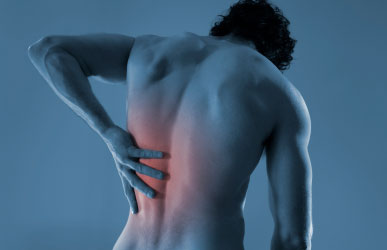(0117) 929 3289




Clifton & Shirehampton Osteopaths - Neck Pain
Causes of Neck Pain
Neck Pain can be caused by sudden physical injury to the spine resulting in trapped nerves or disc damage between the vertebrae, with accompanying muscle spasms.
It can also be more chronic in nature - occupational, postural, and arthritic conditions all being factors to consider.
The sudden intensity of 'acute neck pain' can be due to a locked facet joint or a trapped nerve.
This may cause protective muscle spasm and referred pain to the head, shoulder, and upper middle-back (between the shoulder blades) or into the arm, depending on which nerve or tissue is inflamed.
Trauma, anxiety, awkward sleeping positions and prolonged, poor posture at computer keyboards are often to blame.
Pain lasting longer than three months is regarded as being 'chronic' neck pain.
There may be underlying problems such as 'slipped' or bulging discs, Osteoporosis (brittle bones), Scoliosis (excessive curvature of the spine) and, very rarely, structural damage due to serious pathology (tumours, meningitis etc.)
Car accidents involving whiplash injury can result in acute or chronic neck pain which takes many months to improve.
Occasionally acute pain can be caused by ‘torti-collis’, an abnormal neck posture where the head is forced to one side by protective muscle spasm; it often presents with weakness in the shoulder or arm and with occasional tingling into the arm or fingers. It is most commonly a condition that is present on waking for no apparent reason.
Fibromyalgia
Fibromyalgia is a chronic musculo-skeletal disorder characterized by widespread pain, fatigue, and multiple ‘tender points’, particularly felt in the neck and shoulder areas, although the pelvic and lumbar areas may also be involved.
Additional symptoms may include sleep disturbances, morning stiffness, bowel sensitivity and anxiety.
Diagnosis
We will carry out a full Osteopathic assessment of muscle tone, posture and spinal joint mobility, a neurological examination of reflexes, strength and sensation.
We will relate this to any relevant Occupational and Social factors along with any pre existing problems which may be relevant to the condition.
MRI scans may be requested if considered clinically important.
Treatment
- Osteopathic treatment incorporates - specific, gentle spinal manipulation, soft tissue massage techniques, joint articulation and stretching techniques with the aim of improving spinal joint function and postural stability.
- Postural training and advice is often given on correct ergonomic seating at work and home - efficient screen height and position, sitting position at the work station and whilst travelling in the car.
- Medical treatment of mild muscle pain includes Non-steroidal Anti-inflammatory drugs (NSAIDs). These may be effective in the acute phase of injury in those who can tolerate them but long term use should be discouraged as they may cause serious side effects in some patients.
If you experience any of the symptoms below, please seek medical attention urgently:
- Neck pain and stiffness may be a symptom of meningitis if a rash develops which does not fade when pressed with a glass tumbler or finger.
- Severe pain on neck forward flexion
- Neck pain with severe headache or continuous vomiting
- Sudden loss of muscle power and sensation in arms or legs which may be the result of a large disc prolapse causing spinal chord compression in the neck.
- Neck pain from a recent head injury with drowsiness, confusion or vomiting.
- Disturbances of vision, hearing, taste or balance.
....would you like some more information or book an appointment?
Call us on the corresponding number below:
please telephone: - 0117 929 3289
